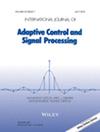随机学习使 "无模型 "ILC 更快收敛:应用于工业印刷中的 MIMO 前馈
IF 3.9
4区 计算机科学
Q2 AUTOMATION & CONTROL SYSTEMS
International Journal of Adaptive Control and Signal Processing
Pub Date : 2024-09-02
DOI:10.1002/acs.3903
引用次数: 0
摘要
无模型迭代学习控制(ILC)可以通过在真实系统上进行专门实验来取代传统模型,从而完全减弱重复干扰,实现高性能。本文旨在为 MIMO ILC 开发一种快速数据驱动方法,该方法采用高效无偏梯度估计形式的随机学习。这是通过开发一种随机共轭梯度算法来实现的,其中搜索方向和最佳步长都是通过专门的实验产生的。该方法被应用于 MIMO 自动前馈调整。仿真和实验结果表明,该方法优于早期的随机和确定性方法。本文章由计算机程序翻译,如有差异,请以英文原文为准。
Random Learning Leads to Faster Convergence in ‘Model‐Free’ ILC: With Application to MIMO Feedforward in Industrial Printing
Model‐free iterative learning control (ILC) can lead to high performance by attenuating repeating disturbances completely, using dedicated experiments on the real system to replace the traditional model. The aim of this paper is to develop a fast data‐driven method for MIMO ILC that uses random learning in the form of efficient unbiased gradient estimates. This is achieved by developing a stochastic conjugate gradient algorithm, in which the search direction and optimal step size are generated using dedicated experiments. The approach is applied to MIMO automated feedforward tuning. Simulation and experimental results show that the method is superior to earlier stochastic and deterministic methods.
求助全文
通过发布文献求助,成功后即可免费获取论文全文。
去求助
来源期刊
CiteScore
5.30
自引率
16.10%
发文量
163
审稿时长
5 months
期刊介绍:
The International Journal of Adaptive Control and Signal Processing is concerned with the design, synthesis and application of estimators or controllers where adaptive features are needed to cope with uncertainties.Papers on signal processing should also have some relevance to adaptive systems. The journal focus is on model based control design approaches rather than heuristic or rule based control design methods. All papers will be expected to include significant novel material.
Both the theory and application of adaptive systems and system identification are areas of interest. Papers on applications can include problems in the implementation of algorithms for real time signal processing and control. The stability, convergence, robustness and numerical aspects of adaptive algorithms are also suitable topics. The related subjects of controller tuning, filtering, networks and switching theory are also of interest. Principal areas to be addressed include:
Auto-Tuning, Self-Tuning and Model Reference Adaptive Controllers
Nonlinear, Robust and Intelligent Adaptive Controllers
Linear and Nonlinear Multivariable System Identification and Estimation
Identification of Linear Parameter Varying, Distributed and Hybrid Systems
Multiple Model Adaptive Control
Adaptive Signal processing Theory and Algorithms
Adaptation in Multi-Agent Systems
Condition Monitoring Systems
Fault Detection and Isolation Methods
Fault Detection and Isolation Methods
Fault-Tolerant Control (system supervision and diagnosis)
Learning Systems and Adaptive Modelling
Real Time Algorithms for Adaptive Signal Processing and Control
Adaptive Signal Processing and Control Applications
Adaptive Cloud Architectures and Networking
Adaptive Mechanisms for Internet of Things
Adaptive Sliding Mode Control.

 求助内容:
求助内容: 应助结果提醒方式:
应助结果提醒方式:


